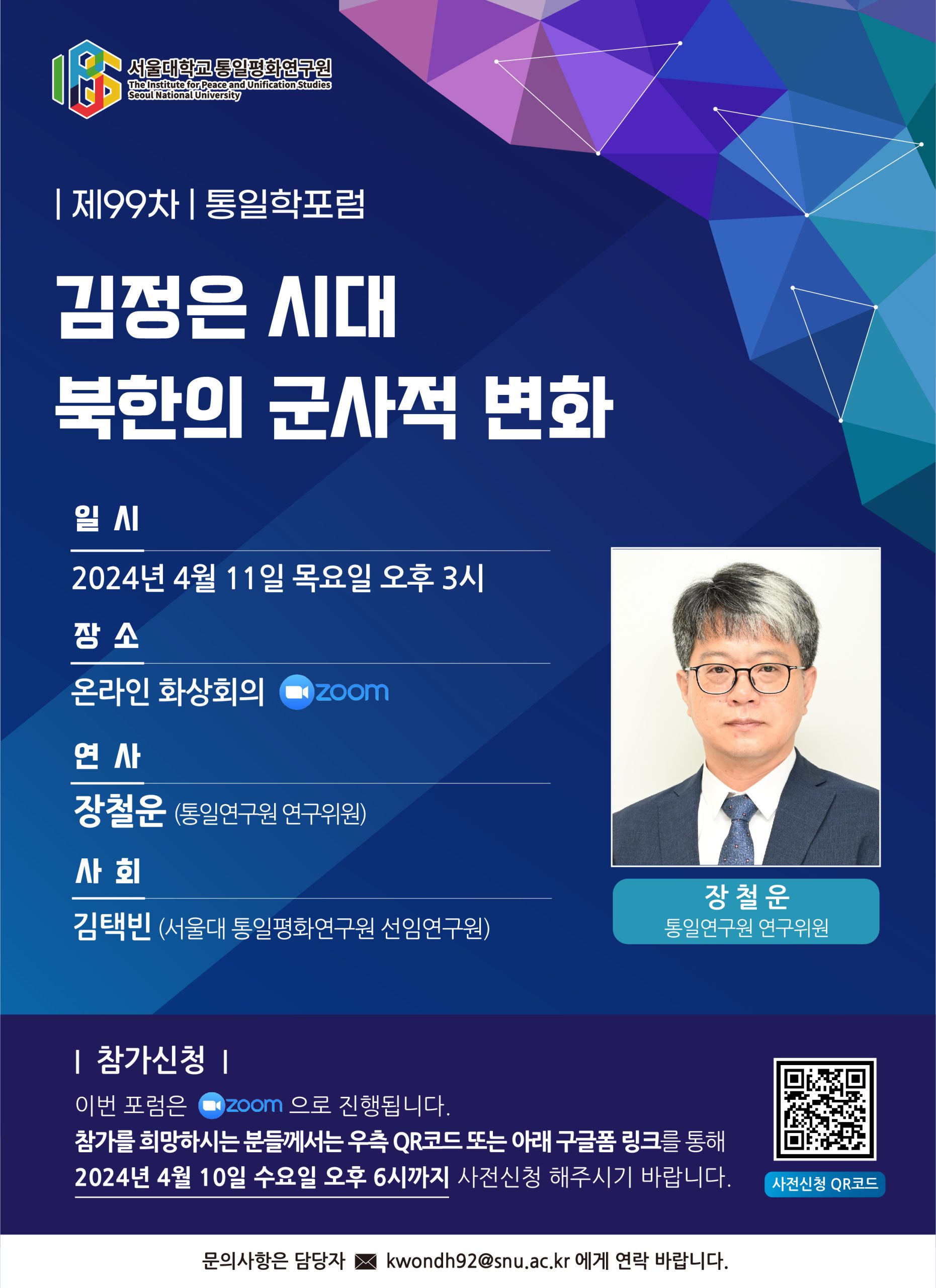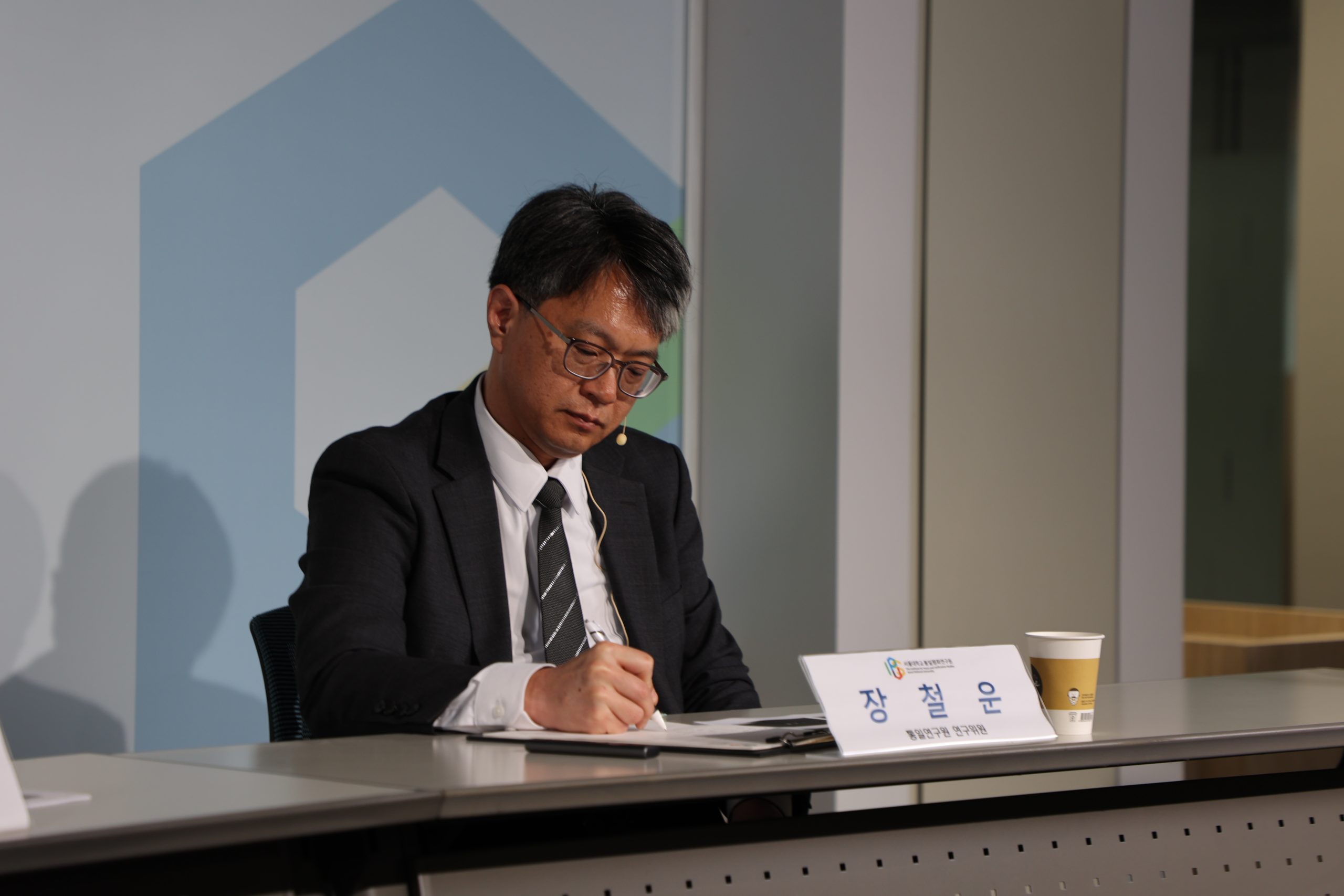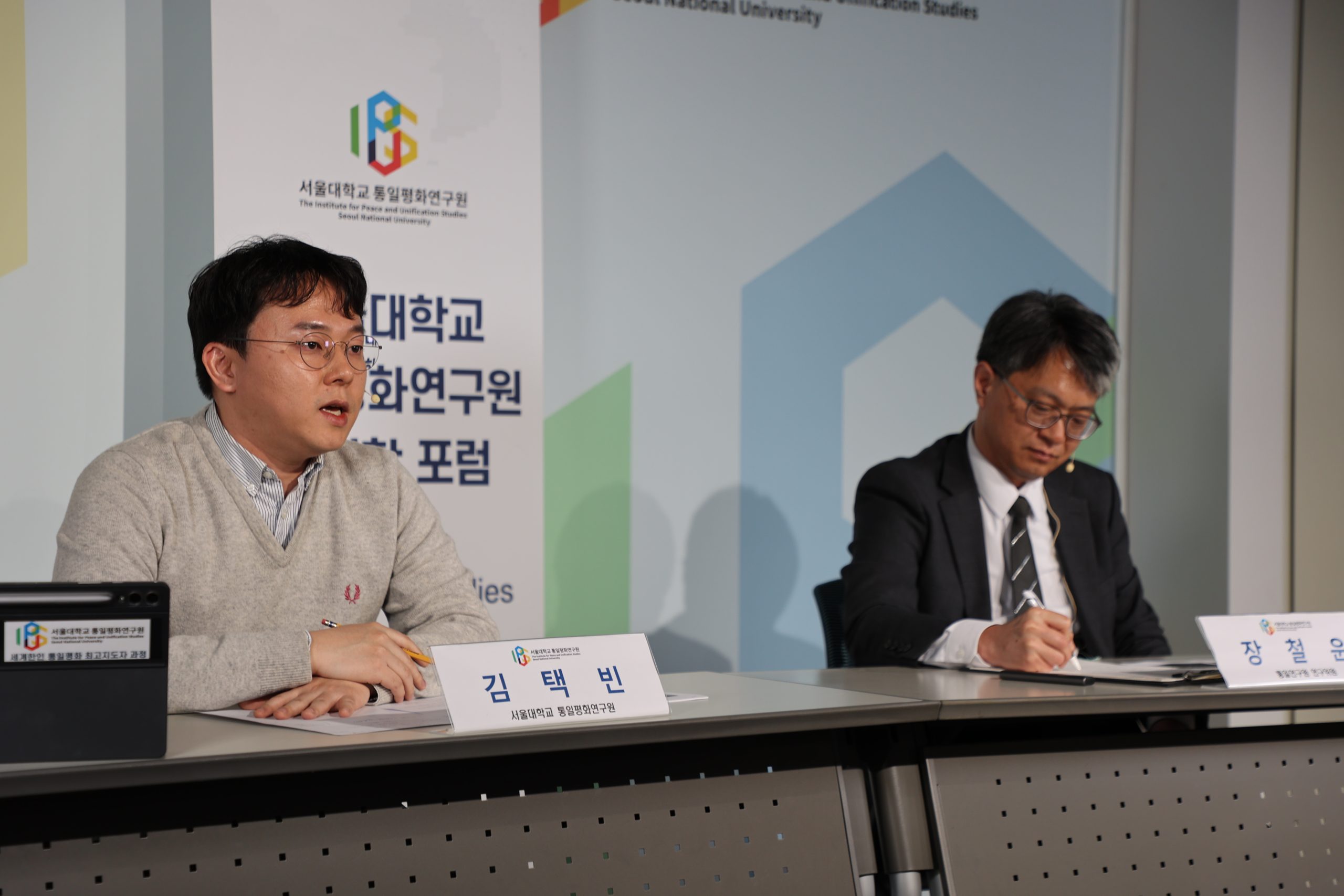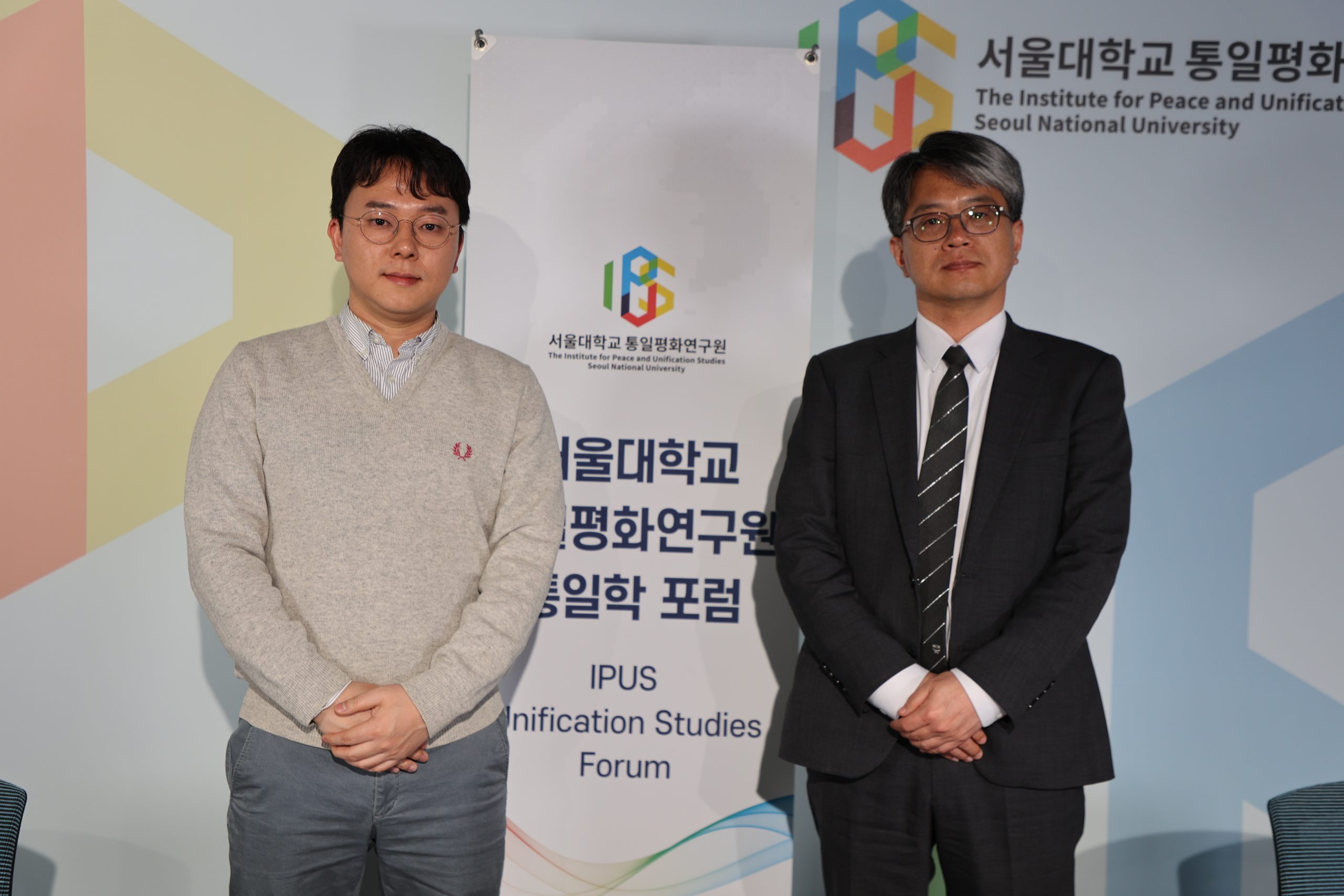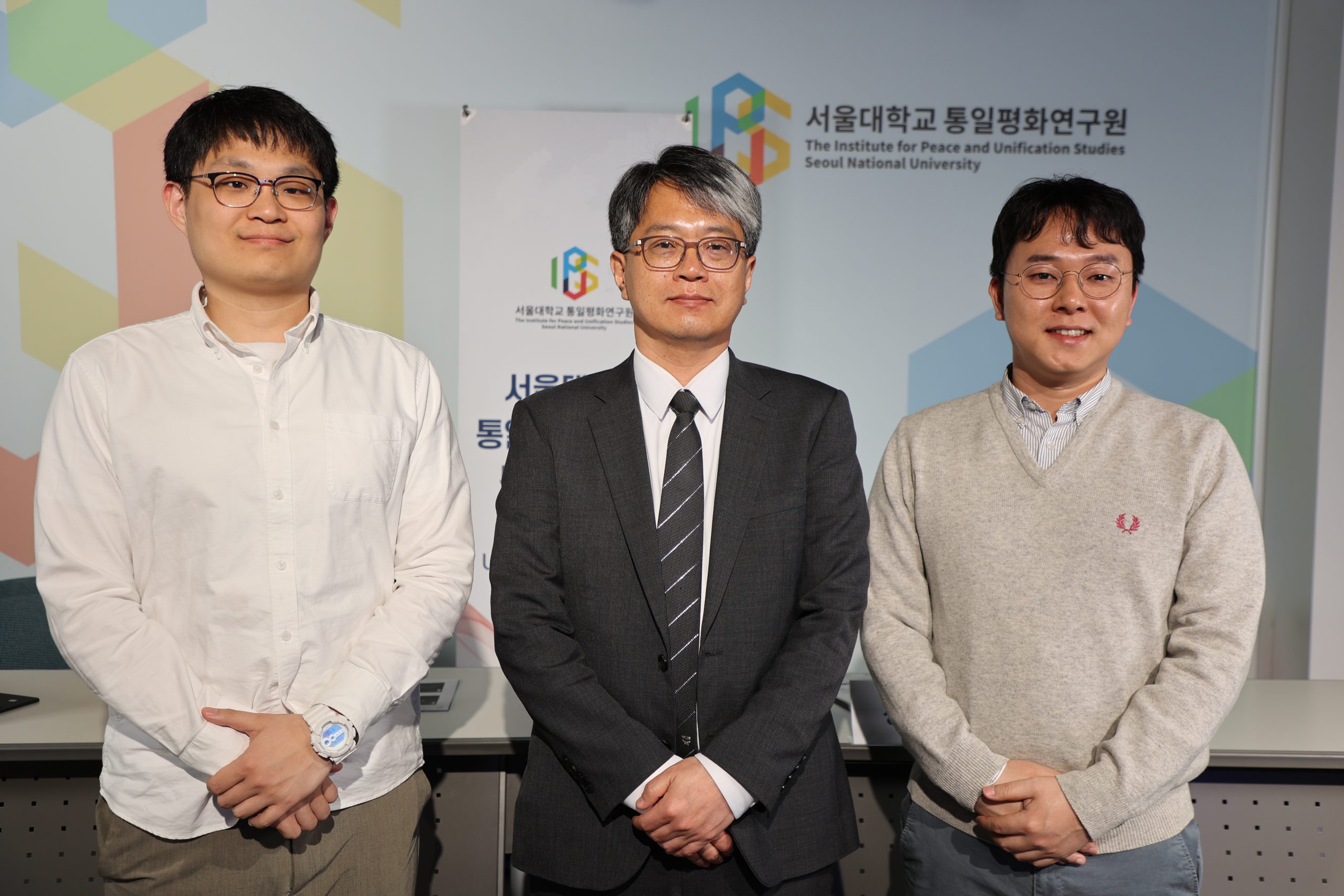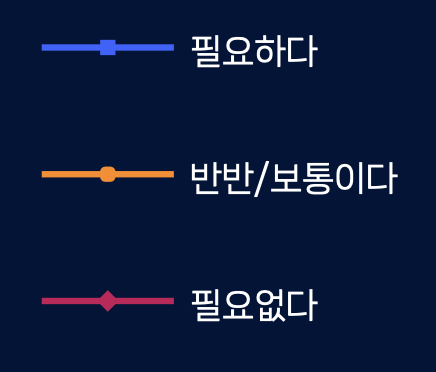[99th Unification Studies Forum] North Korea’s Military Transformation under Kim Jong Un
- Date&Time: Thursday, April 11, 2024, 15:00 – 17:00 (KST)
- Venue: Online Video Conference(ZOOM)
- Moderator: Kim, Taek-bin (Senior Researcher, IPUS at SNU)
- Speaker: Jang, Cheol-wun (Research Fellow, KINU)
- Topic: North Korea’s Military Transformation under Kim Jong Un
The Institute for Peace and Unification Studies at Seoul National University(IPUS at SNU) hosted the 99th Unification Studies Forum on Thursday, April 11, 2024, under the theme of “North Korea’s Military Transformation under Kim Jong Un. The Unification Studies Forum is an expansion and reorganization of the Unification Policy Forum, which was held 75 times between 2006 and 2020, and is now in its 99th edition. The forum was moderated by Dr. Kim Taek-bin, a senior researcher at IPUS, who opened the forum with a welcome speech.
In this forum, Dr. Jang Cheol-wun explained North Korea’s military power and military policy during the Kim Il-sung and Kim Jong-il eras, as well as its changes under Kim Jong-un. First, under Kim Il-sung and Kim Jong-il, North Korea was militarily self-reliant and focused on building and maintaining a strong military. During this period, North Korea maintained a large army and fleet and emphasized the concept of “politico-military revolutionary force” to bolster its defense capabilities. Under Kim Jong Il, the country sought to further strengthen and modernize these military foundations, and it also began to develop its nuclear weapons and missile programs in earnest, most notably with a successful nuclear test in 2006 and a number of subsequent nuclear tests and missile launches. These military changes are closely aligned with North Korea’s strategic goals. North Korea aims to develop nuclear weapons and missiles to strengthen its international standing, prepare for foreign military pressure, and enhance domestic security. These military capabilities also appear to play an important role in achieving North Korea’s political goals. Under Kim Jong Un, North Korea’s military policy has taken a somewhat different turn. The regime places a high value on nuclear weapons and missile development. It is actively pursuing the upgrading of its nuclear arsenal, including the diversification of warhead delivery vehicles. The Kim era has also seen some shifts in military priorities. Previously focused on a large army and fleet, the country is now devoting more resources to nuclear weapons and missile development, cyber warfare, and special operations. Meanwhile, its military policy has become more centralized and tightly controlled. This is leading to more efficient operation of North Korea’s military forces and efforts to prevent information leakage to the outside world.
In his concluding remarks, Dr. Jang emphasized that the basic framework of North Korea’s military policy and military power is to be found in the military confrontation on the Korean Peninsula. It is based on the continuation of military confrontation between North and South Korea centered on massive conventional military power and the perceived threat of the presence of the U.S. and South Korean allied forces. Furthermore, Kim Jong-un’s military transformation should be seen as basically an extension of his predecessor’s regime. In the past, North Korea has already been overwhelmed by South Korea in terms of the quality of its conventional weapons and has tried to overcome this with a quantitative buildup. Of course, Kim Jong Un’s nuclear program is one of the ways to make up for the deficit in the conventional competition, but basically, the regime has been trying to steadily overwhelm South Korea in terms of conventional weapons. However, economic difficulties make it difficult to achieve this. Dr. Jang concluded the 99th Forum by urging the participants to pay attention to macro-level military changes as well as micro-level weapon changes.

